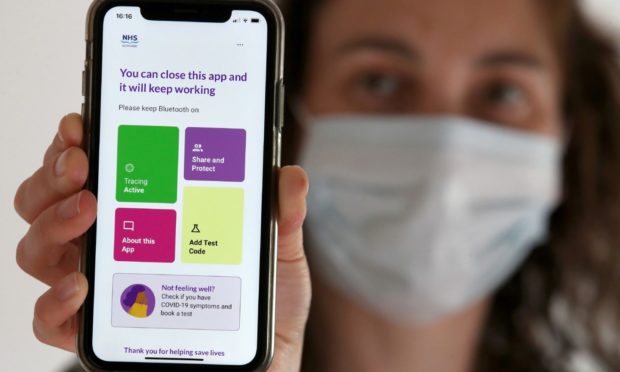One of the reasons I am an internationalist and not a nationalist is because I cannot see any sense in having different policies across borders when dealing with a pandemic.
I found myself in strong agreement with Sir Tom Hunter when he called for closer co-operation between the governments of the UK in defeating the virus.
I could hardly believe it when I read that the phone app allowing tracing to take place if you haCovidve been in contact with an infected person could not work if you crossed the border from Scotland to England – and presumably in the reverse direction too.
How did this happen? Did the people who devised the app not realise there are thousands of people crossing the border in both directions every day? Was the app designed on another planet or in some remote part of the world that didn’t know we all live on an island in Britain?
I think the health minister in Holyrood needs to be asked if any direction was given to keep it separate for the purpose of emphasising the difference between England and Scotland to make the case for an independent Scotland. And why didn’t the NHS in England think of asking whether their app could include Scotland.
Whether accident or design this is a nonsense that needs to be sorted out. We cannot tackle a serious pandemic like this if we retreat into nationalist bunkers.
Both the EU and the UK were formed because people realized that co-operation was better than nationalism and in a successful effort to prevent wars and cross border conflicts. Whatever your views on Brexit or on breaking up the UK both organisations have been very successful in this respect.
Over the last 300 years we have developed constitutional links between the nations of the UK that allowed co-operation to be ever more successful and I would argue it was a key factor in enabling the industrial revolution to start here with all the benefits of a single market of some 68 million people.
This small but very serious example of an app designed to control a pandemic is a warning of how ridiculous narrow nationalistic thinking can be whether by intention or by a failure to co-operate and that is why I am so critical of Boris Johnson’s approach and of the SNP government which puts constitutional change ahead of sound common sense.
The lack of coherence in Boris Johnson’s approach to the pandemic has encouraged support for a Scottish breakaway but please note, independence is still much lower on the concerns of the Scottish people then the worries about the failure of the SNP government to clean up the mess they have made of education, health and the economy which is now performing worse then the rest of the UK.
It is quite possible that either the EU or the UK could break up into smaller nation states again and the rise of nationalism worldwide is driving in that direction. The referendum on membership of the EU was intensely divisive just as a referendum on Scotland’s membership of the UK is, and will be, divisive. Indeed if you think as I do that delivering Brexit was an unedifying mess, think of how much more messy a divorce between the UK and Scotland will be when over 60% of what will become Scotland’s exports go to the rest of the UK.
One of the reasons I joined the Labour party was because of its internationalism – the history of the 19th and 20th century should warn us about the dangers of nationalism. Everything that is happening now tells me that while we need some constitutional change to make the UK work better and to ensure the effectiveness of devolution it is not anything like a priority in the face of a global pandemic.
Common sense and international co-operation will always be more constructive then the rising tide of nationalism. Beware!
Clive Soley is a former MP and chair of the Parliamentary Labour Party who is now vice-chair of the Scottish Peers Association and a member of the House of Lords EU Select sub committee on home affairs. He lives in the Highlands.











